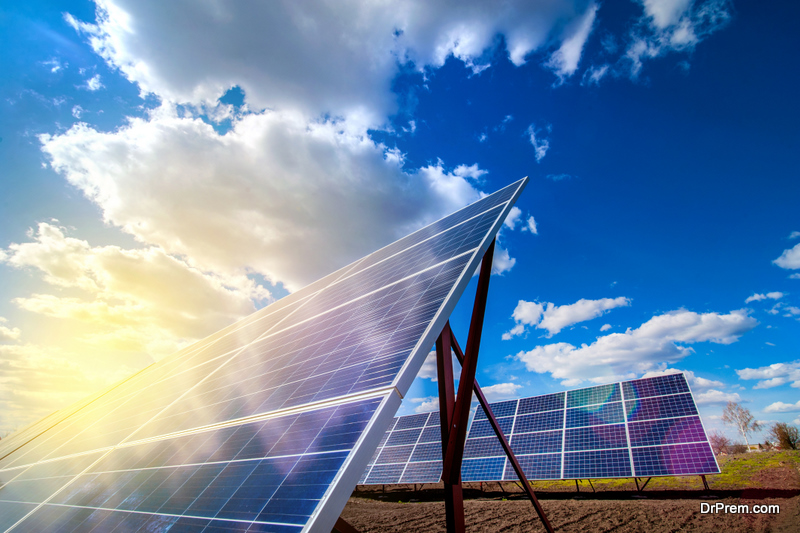It’s no doubt that the topic of solar energy has been omnipresent in our lives since it became available domestically in the 1980s. But what used to be extremely expensive and inaccessible is now something that doesn’t seem quite as out of reach. And recently, the reasons to transition to this renewable energy seem to be stacking up.
Here are 5 of the latest reasons why solar energy is becoming the future of energy in Europe.
1. The EU plans to make solar panels mandatory on all new buildings

The EU Commission announced in March 2022 its plan for solar panels. These plans are a part of its efforts to achieve its 2030 renewable energy targets, which aims to reduce net greenhouse gas emissions by at least 55%. By making solar panels mandatory on all new buildings by 2029, the EU foresees a future where solar is the largest electricity energy source.
In fact, UK Prime Minister Boris Johnson said that 100% of the country’s electricity could come from renewables by 2035. And solar panels in the UK would play a large part in achieving this.
To help make solar technology a less risky investment for households, the EU is supporting the demonstration of large solar installations and contributing to financing brand new solar plants. This coincides with research aiming to make solar panels more efficient and lower the costs of electricity generation.
2. Solar technology is more affordable and accessible
Rapid technology advancements over the past decade have seen the price of solar energy reducing every year without fail. Solar energy is now 80% cheaper than it was 10 years ago. This is also due to increased accessibility to solar panel grants and subsidies, especially in the UK.
The increased affordability of solar panels has also been reflected in the growing popularity of solar energy. Despite adverse market conditions in 2021 from COVID-19, PV product supply shortages, and consequent price hikes, solar energy in Europe continues to grow. The 27 EU member states saw an increase of 34% of new solar photovoltaic capacity connected to their energy grids in 2021 compared to 2020.
Taking just the UK as an example, statistics show that in 2008 solar panels accounted for just 1 megawatt of electricity generation, but in 2020 solar panels in the UK were responsible for 11,730 megawatts.
3. Solar energy is outpacing fossil fuels

As we see solar energy become more affordable, we can expect that fossil fuels will become increasingly more expensive as we deplete their non-renewable resources and it becomes more costly to mine them. Historically, fossil fuels have been easy to find and the technology has been well-developed, but we are consuming fossil fuels faster than they’re being replenished.
Given this current consumption rate, it’s hard to ignore the fact that we need a more long-term energy source. This is where solar energy comes in. As long as the sun is still shining, we can still generate electricity with much less detrimental environmental effects than fossil fuels.
4. Growing push to reduce dependence on Russian fossil fuels
Currently, Russia supplies 40% of the EU’s gas, at a cost of more than USD$110 million each day. As a result of the Ukraine-Russia conflict, many countries have turbocharged their existing green energy transition targets as they move toward ending their reliance on Russian fossil fuels. They plan to do so by turning towards renewable energy sources.
5. Solar technology continues to make strides

Solar thermal collectors are mostly utilised in residential structures to provide domestic hot water, but they may also be employed in industrial settings. Solar-powered solutions for the generation of home hot water, district heating, and industrial or commercial uses are being developed through EU research.
The current challenge is improving energy efficiency and integrating solar technologies into buildings’ cooling and heating systems. This is in addition to conducting economic analyses as the viability of these projects is affected by local conditions and fuel prices of the system being replaced by a solar energy system.
A UK firm, Oxford PV, is already making breakthroughs in UK solar panels. They announced that technology based on a perovskite crystal can generate almost a third more electricity than what is currently available.
Conclusion
Europe continues to push a solar power push with an agenda with double urgency. On one hand, there is the climate action and environmental push, but on the other hand, we see the economic gain and argument. Either way, for solar to become a significant source of green energy in Europe, the generation costs need to be reduced and the energy efficiency needs to be improved.
Article Submitted By Community Writer




